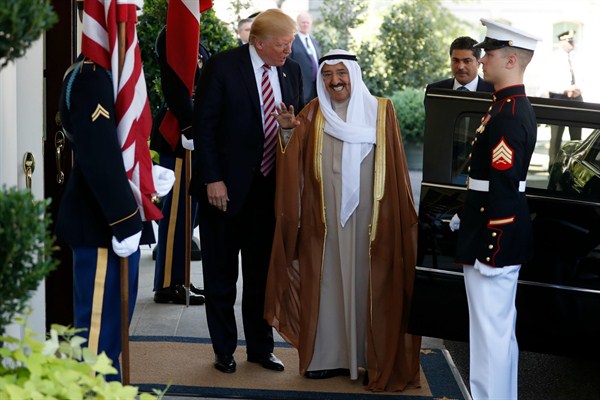The meeting in the White House last week between the ruler of Kuwait and President Donald Trump set off a flurry of diplomatic activity. For a moment, it appeared as though it might lead to an opening for resolving the three-month-old dispute that has divided U.S. allies in the Persian Gulf, with Qatar on one side and a Saudi-led bloc of four countries on the other.
Hopes were dashed, however, when the efforts collapsed into even more bitter acrimony between Saudi Arabia and Qatar. But this time, there was a new twist in the dispute: Some of the invective, though carefully couched in diplomatic niceties, was directed at Kuwait. The episode highlighted just how delicate the situation is for Kuwait, which has taken on the role of mediator in the conflict tearing at the Gulf Cooperation Council, or GCC.
The signs looked promising after the Kuwaiti emir, Sheikh Sabah al-Ahmad al-Jaber al-Sabah, met with Trump and the two gave a joint press conference. Trump then phoned Qatar’s ruler, Sheikh Tamim bin Hamad Al Thani; the next day Sheikh Tamim and Saudi Arabia’s crown prince, Mohammed bin Salman, spoke on the phone.

